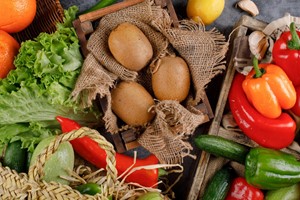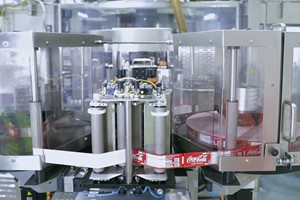In a world increasingly concerned about environmental sustainability, the food industry is stepping up to the plate with innovative solutions aimed at reducing its ecological footprint. Green food processing, a concept gaining traction across the globe, offers a promising pathway towards eco-friendly transformation of raw ingredients into delectable food products. By addressing critical concerns such as resource utilization, environmental pollution, and overall sustainability, green food processing is revolutionizing the way we produce and consume food.
Resource Utilization
Water conservation, energy efficiency, and waste reduction lie at the heart of green food processing initiatives. By implementing techniques like ultrasound and pulse electric fields, companies can significantly lower energy consumption during processing. Moreover, minimizing water usage in cleaning and processing steps not only conserves this precious resource but also reduces the energy required for water treatment. Additionally, by optimizing processes and utilizing byproducts for other purposes, the amount of food waste generated during production can be minimized, contributing to a more sustainable food system.
Environmental Pollution
Green food processing endeavors to minimize emissions and adopt sustainable packaging practices. By reducing greenhouse gases and air pollutants generated by processing facilities, companies can mitigate their environmental impact. Furthermore, embracing biodegradable or recycled materials for packaging helps curb the proliferation of plastic waste, which poses a significant threat to ecosystems worldwide. Natural preservatives, such as those employed in high-pressure processing, offer a safer alternative to chemical additives, ensuring food safety without compromising environmental integrity.
Overall Sustainability
From locally sourced ingredients to fair trade practices, green food processing champions sustainability across the supply chain. By sourcing agricultural products locally or regionally, companies can reduce transportation emissions associated with long-distance shipping. Additionally, adopting fair trade practices ensures ethical treatment of farmers and workers involved in food production, fostering social responsibility within the industry. Moreover, transparency and traceability initiatives empower consumers to make informed choices by providing clear information about the origins and processing methods of their food, promoting accountability and trust.
Green Food Processing Techniques
Several innovative techniques exemplify the principles of green food processing. High-pressure processing (HPP) stands out for its ability to inactivate pathogens and extend shelf life without relying on heat or chemical preservatives. Similarly, pulsed electric field (PEF) technology disrupts bacteria and enhances the extraction of bioactive compounds using electrical pulses, offering a sustainable approach to food processing. Membrane separation techniques purify and concentrate liquids while reducing water and energy consumption, demonstrating the potential for resource-efficient processing. Additionally, supercritical fluid extraction utilizes CO2 under high pressure and temperature to extract valuable compounds from plants without resorting to harmful solvents, furthering the cause of sustainable food production.
Recent Projects Making a Mark in the Industry
foodHQ Staff














